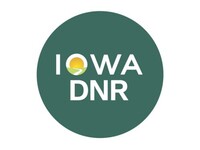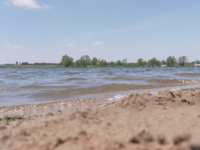Physical Location
Location Address
2303 Lake Road
Bedford, IA 50833
Areas Served
Taylor
Phone(s)
Fax
Website
About the Park
A hotspot for equestrian trail riding and camping, Lake of Three Fires State Park in southwest Iowa provides diverse outdoor recreation opportunities. The park’s 85-acre lake is a local destination for boaters and anglers, and several open picnic areas are available near the lake.
Lake of Three Fires was dedicated in 1935 and is named after a group of Native Americans from the Potawatomi tribe who once inhabited the area known as the “Fire Nation.”
Plan Your Visit
- Hike more than 10 miles of multi-use trails, winding around the lake, through wetlands and prairie. Wildlife is often spotted on the trails, which is a combination of grass, rock and dirt surfaces. Horseback riding and snowmobiling are also popular activities for exploring the park’s trails.
- Boat or Fish at Lake of Three Fires, or swim at the sandy beach area. Boats may be operated at “no-wake” speeds and two boat ramps provide convenient access to the water. Fishing jetties provide shoreline access, and anglers can fish for a variety of species including bluegill and bullhead. Horseshoe pitching areas are located at the beach near the lodge.
- Hunt at the park’s public hunting area near the north and south borders. Nearly 400 acres of hunting area surround the park, although hunting is not allowed within park borders.
- Stay overnight in one of six studio cabins or at the two modern campgrounds. Cabins offer heating and air conditioning, a microwave, refrigerator and cook-top stove; visitors must provide their own bedding, towels and cooking supplies. Both campgrounds contain restrooms, showers and a trailer dump station. An equestrian campground has non-electric and electric sites, restrooms, corrals, hitching posts and holding pens. Advance campsite reservations can be made through the online reservation system for Lake of Three Fires State Park. The campground is 100% reservable and a reservation is required.
- Reserve one of two open shelters for an outdoor gathering during your visit. One of the shelters contains electricity and water, and a renovated day-use lodge near the beach can be reserved for large gatherings. Both shelters and the day-use lodge can be reserved through the online reservation system for Lake of Three Fires State Park.
Lodge Tour
Amenities at a Glance
- Hunting
- Horseshoe pitching areas
- Sand volleyball
- Playground
- Hiking trails
- Swimming beach
- Boat ramps (2)
- Fishing jetty
- Day-use lodge (1); ADA accessible
- Shelters
- Modern restroom
- Showers
- Family studio cabins
- Electric campsites
- Non-electric campsites
- Equestrian, electric campsites
- Equestrian, non-electric campsites
- Equestrian, buddy campsites
- Buddy campsites
- Youth group only campsites
- Dump station

